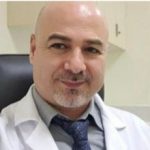
3rd Edition of International Arabian Summit
ON
Neuropsychiatry & Mental Health
Event Date
October 27-28, 2026
Venue
Dubai, United Arab Emirates
– Previous Conference Performers / Professionals From Around The Globe –
Media Partners/Collaborator
A huge thanks to all our amazing partners. We couldn’t have a conference without you!










Sponsors/Exhibitors
A huge thanks to all our amazing partners. We couldn’t have a conference without you!


PSYCHIATRY CONFERENCE 2026
The 3rd International Arabian Summit on Neuropsychiatry & Mental Health is scheduled to take place on October 27-28, 2026, in the dynamic city of Dubai, United Arab Emirates. This landmark event will gather leading experts, clinicians, researchers, mental health professionals, and academics from around the world to engage in critical discussions and collaborations on advancing the fields of neuropsychiatry and mental health.
As the global burden of mental health disorders continues to rise, the need for integrated and innovative approaches to mental healthcare has never been more pressing. The summit aims to address the complex relationship between neurological and psychiatric conditions and explore the latest advancements in diagnosis, treatment, and prevention strategies. From neurobiological research to clinical psychiatry and community mental health, the conference offers a comprehensive platform to bridge the gap between neuroscience and mental health practice.
The scientific program is designed to cover a broad range of topics, including but not limited to: mood disorders, anxiety, schizophrenia, neurodevelopmental and neurodegenerative disorders, addiction, trauma-related disorders, and the psychiatric aspects of neurological diseases. In addition, the summit will explore cutting-edge research in areas such as brain imaging, psychopharmacology, cognitive behavioral therapies, and digital mental health technologies, including AI and virtual therapy platforms.
Keynote addresses from internationally recognized leaders in the field will provide deep insights into current challenges and future directions. Panel discussions and interactive workshops will offer participants the opportunity to explore case studies, share clinical experiences, and discuss innovative treatment approaches. Special sessions will also be dedicated to addressing stigma, mental health policy, and the role of cultural context in shaping mental health care systems, particularly in the Middle East and North Africa (MENA) region.
A significant focus of the summit is to promote collaboration between disciplines—linking psychiatry, neurology, psychology, social work, and public health—to create holistic approaches to care. The event will also encourage the participation of early-career professionals, providing a nurturing environment to present their research, connect with mentors, and gain international exposure.
Hosting the event in Dubai, a city known for its global connectivity and commitment to innovation, offers attendees an exceptional environment for both professional and cultural exchange. The venue provides state-of-the-art facilities for a seamless conference experience, while the city itself offers rich cultural experiences, world-class hospitality, and numerous opportunities for networking beyond the sessions.
Whether you are a practicing clinician, researcher, academic, or policymaker, the International Arabian Summit on Neuropsychiatry & Mental Health 2026 promises to be an essential event for expanding your knowledge, building meaningful connections, and contributing to the global conversation on mental health and neurological well-being.
We invite you to join us in Dubai this December for a transformative and impactful event dedicated to shaping the future of neuropsychiatry and mental healthcare worldwide.
Why join?
Learn and share through Workshops and Interactive Sessions
Workshops and interactive sessions involve extensive interaction between the presenters and delegates around an idea or hands-on experience of a practice. These interactive sessions may take the form of a panel, staged conversation, or debate – all involving substantial interaction with the participants. Therefore a variety of sessions, keynote lectures, symposiums, workshops, and poster presentations will give you an opportunity to share and present research to your colleagues from around the world.
Meet your subject matter experts
Subject Matter Experts will lead you in current research & development. They help you with research queries, and content, identify the objectives, and ensure your research is scientifically acceptable.
Networking/ round table discussions
Psychiatry and Mental Health 2026 has its specially designed networking and round table discussion session, which brings together clinicians, health professionals, and patients on the front lines of psychiatric care to learn from each other and build professional networks and collaboration.
Who can join the event?
Psychiatry and Mental Health 2026, provides the participants with different modes or ways to participate under either academic/student/business category
- Speaker (oral presentation): 25-30 minutes (only one person can present)
- Speaker (workshop): 45-50 minutes (more than 1 can present)
- Speaker (special session): 45-50 minutes (more than 1 can present)
- Speaker (symposium): more than 45 minutes (more than 1 can present)
- Delegate (only registration): will have access to all the sessions with all the benefits of registration
- Poster presenter: can present a poster and avail the benefits of delegate
- Remote attendance: can participate via video presentation or e-poster presentation
- Exhibitor: can exhibit his/her company’s products by booking exhibitor booths of different sizes
- Media partner
- Sponsor
- Collaborator
For Researchers & Faculty:
For Universities, Associations & Societies:
For Students & Research Scholars:
- Poster Competition (Winner will get Best Poster Award)
- Young Researcher Forum (YRF Award to the best presenter)
- Student Attendee
- Group Registrations
For Business Delegates:
- Speaker Presentations
- Symposium hosting
- Book Launch event
- Networking opportunities
- Audience participation
For Companies:
- Exhibitor and Vendor Booths
- Sponsorships opportunities
- Product launch
- Workshop organizing
- Scientific Partnering
- Marketing and Networking with clients
Target Audience
- Psychologists, Psychiatrists, Neuropsychiatrists, Psychotherapists
- Nurse Practitioners
- Professors, Associate Professors, Assistant Professors
- Ph.D. Scholars
- Directors, CEOs of Organizations
- Association Presidents, Vice Presidents, and Professionals
- Noble laureates in Health Care and Medicine
- Pharmaceutical development companies
- Research Institutes and members
- Graduates and Postgraduates
- Medical devices Manufacturing Companies
- Training Institutes
- Business Entrepreneurs
Conference highlights
- Psychiatry
- Psychology
- Mental Health and Wellness
- Brain Injury Medicine
- Health Psychology
- Clinical Psychology
- Neuropsychiatry
- Mental Health
- Psychological disorders
- Mental and Behavioral Health Strengthening
- Psychiatric & Mental Health Nursing
- Neurology, Neurological Disorders & Treatments
- Neuroscience
- Schizophrenia
- Addiction, Rehabilitation & Psychotherapy
- Mindfulness, Yoga & Meditation
- Psychotherapy disorders
- Mental Disorders
- Women’s Mental Health
- Mental Disorders and Rehabilitation
- Mental Health Awareness
- Stress, Depression, and Anxiety
- Suicide and Self-harm
- Child Abuse
- Depression and Anxiety
- Behavioural Science & Medicine
- Neuropsychology and Neurodegenerative Disorders
- Women and Mental Health
- Behavioral Health Disorders
- Bipolar Disorder and Schizophrenia
- Neuropsychiatric disorders
- Adolescent Psychopathology
- Addiction Medicine Therapy
- Mental health Nursing
- Advanced Nursing Practice
- Clinical Psychology
- Depression and Anxiety
Session and Tracks
Track 1: Psychiatry and Psychiatric Disorders
Psychiatry is a medical specialty that focuses on mental, emotional, and behavioral disorders. The term “psychiatric disorder” encompasses a broad range of conditions affecting a person’s thoughts, feelings, behavior, or mood. Referred to as “mental illness” or “mental health conditions,” psychiatric disorders can significantly impact an individual’s ability to function at work or school and maintain healthy social relationships. It’s essential to note that psychopathy is not a weakness but a medical condition. Psychiatric disorders are treatable, with effective treatments varying based on the specific disorder and the severity of symptoms.
- Anxiety disorders
- Stress disorders
- Major depressive disorder
- Mood disorders
- Eating disorders
- Schizophrenia
- Schizoaffective disorder
Track 2: Brain Disorders
The brain serves as our body’s control center, part of the central nervous system that includes the spinal cord and an extensive network of nerves and neurons. Brain disorders encompass various conditions or disabilities that impact brain function, affecting areas such as memory, sensation, and personality.
- Alzheimer’s Disease
- Dementias
- Brain Cancer
- Epilepsy and Other Seizure Disorders
- Mental Disorders
- Parkinson’s and Other Movement Disorders
- Stroke and Transient Ischemic Attack (TIA)
Track 3: Psychology & Mental Health
Mental health influences emotional, psychological, and social well-being, shaping how individuals think, feel, and act. It plays a vital role at every life stage, from childhood through adulthood, affecting how we handle stress, relate to others, and make decisions.
Track 4: Counselling & Psychotherapy
Counseling typically addresses short-term issues with straightforward resolutions, while psychotherapy involves a more in-depth exploration of an individual’s psychological history and long-term treatment. Counseling deals with present problems that can be easily resolved, whereas psychotherapy examines a person’s psychological history extensively.
Track 5: Child and Adolescent Psychiatry
Child and adolescent psychiatry focus on the diagnosis, treatment, and prevention of mental disorders in young individuals and their families. It explores the biopsychosocial factors influencing psychiatric disorders and utilizes psychotherapy and/or medication for treatment.
Track 6: Stress, Depression, and Anxiety
Stress, depression, and anxiety are distinct experiences, not interchangeable. Seeking professional help allows individuals to identify and address these issues effectively. Many people may exhibit elements of depression and anxiety without necessarily receiving a clinical diagnosis or requiring medication.
Track 7: Neuropsychiatry
Neuropsychiatry & Neuropsychology investigate how brain structure and function relate to specific mental processes and behaviors. This field aims to understand how behavior and cognition are affected by brain functioning, contributing to the diagnosis and treatment of neurological disorders.
Track 8: Autism Spectrum Disorder
Autism spectrum disorder involves developmental challenges affecting social interaction and communication, accompanied by restricted and repetitive behavior patterns.
Track 9: Addiction, Addictive Disorders, and Recovery
Addiction is a chronic brain condition influenced by both genetic and environmental factors, involving substance use or compulsive actions despite harmful consequences. The concept of addiction now extends beyond substances to include behaviors, emphasizing the need for comprehensive treatment approaches.
Track 10: ADHD & Learning Disorders
ADHD is a medical condition affecting attention, self-control, and the ability to sit still. Learning disorders are cognitive conditions impacting the brain’s ability to process information, affecting areas such as reading, writing, and comprehension.
Track 11: Geriatric Psychiatry
Geriatric Psychiatry addresses mental health issues in older adults, including anxiety, depression, personality disorders, dementia, and substance abuse.
Track 12: Suicide & Prevention
Suicide prevention efforts aim to reduce the risk of suicide through interventions at individual, relationship, community, and societal levels. Treatment for mental illness, improving coping strategies, and providing hope for a better life are essential components.
Track 13: Mental Health
Mental health encompasses emotional, psychological, and social well-being, influencing thoughts, feelings, and actions across all aspects of life.
Track 14: Adult Mental Health
Adult mental health covers a range of conditions such as depression, anxiety, bipolar disorder, and schizophrenia, impacting the emotional, psychological, and social well-being of adults.
Track 15: Child and Adolescent Mental Health
Focusing on individuals aged 0-18, child and adolescent mental health addresses issues like ADHD, autism, anxiety, and depression, emphasizing early intervention, therapy, parental support, and school-based interventions.
Track 16: Mental Illness
Mental illness refers to various conditions affecting a person’s thinking, mood, and behavior, including depression, schizophrenia, anxiety disorders, and bipolar disorder. Treatment involves a combination of therapy, medication, support groups, and lifestyle changes.
Track 17: Impulse-Control Disorder
Impulse-Control Disorder involves difficulties in resisting impulsive urges or behaviors, such as intermittent explosive disorder, kleptomania, and pyromania. Treatment includes therapy, medication, and coping strategy development.
Track 18: Neurodevelopmental Disorders
Neurodevelopmental disorders affect the nervous system’s development, impacting cognition, communication, social interaction, and motor skills. Examples include autism spectrum disorder, ADHD, and intellectual disability, with treatment involving a multidisciplinary approach.
Track 19: Post-traumatic Stress Disorder (PTSD)
Post-traumatic Stress Disorder (PTSD) results from traumatic events, causing symptoms like intrusive memories, nightmares, hypervigilance, and avoidance. Treatment includes therapy, particularly cognitive-behavioral therapy (CBT), and may involve medication.
Track 20: Bipolar Disorder
Bipolar disorder involves extreme mood swings, including manic and depressive episodes. Treatment typically includes a combination of medication, therapy, and lifestyle adjustments to manage mood symptoms.
Track 21: Personality Disorders
Personality disorders exhibit persistent patterns of behavior, thoughts, and emotions deviating from cultural norms, causing distress. Examples include borderline personality disorder, narcissistic personality disorder, and antisocial personality disorder. Treatment often involves therapy, including dialectical behavior therapy (DBT) or cognitive-behavioral therapy (CBT).
Market analysis
The Psychiatry and Mental Health Conference is a pivotal event in the healthcare landscape, providing a platform for professionals, researchers, and experts to converge and discuss the latest advancements, challenges, and trends in the field. This conference plays a crucial role in fostering collaboration, sharing knowledge, and promoting innovation in psychiatry and mental health.
Market analysis of this conference reveals a growing demand for a comprehensive understanding of mental health issues and the need for effective strategies to address them. With the increasing recognition of mental health as a global concern, the conference attracts a diverse audience, including psychiatrists, psychologists, social workers, and policymakers. The market for mental health conferences is expanding as awareness of mental health issues rises, leading to an increased emphasis on research, treatment modalities, and preventative measures.
Key drivers for the growth of this market include rising mental health challenges, the integration of technology in mental health care, and a growing acceptance of holistic approaches. Additionally, the conference serves as a platform for pharmaceutical companies, mental health clinics, and technology providers to showcase their latest products and services.
Overall, the Psychiatry and Mental Health Conference is a vital hub for networking, knowledge exchange, and business development in the mental health sector. As the importance of mental health continues to gain prominence, the market for such conferences is anticipated to witness sustained growth, reflecting the increasing commitment to addressing and mitigating mental health issues on a global scale.









































